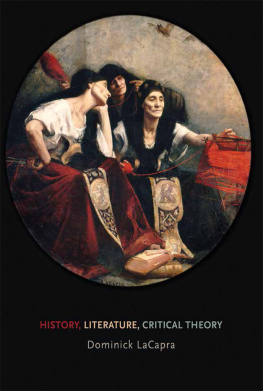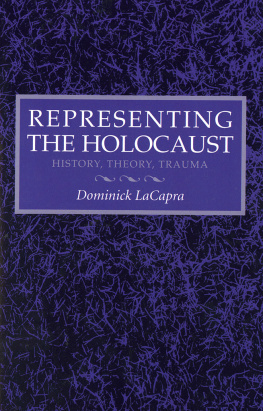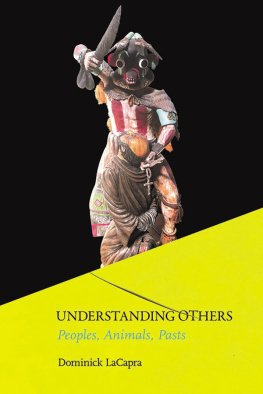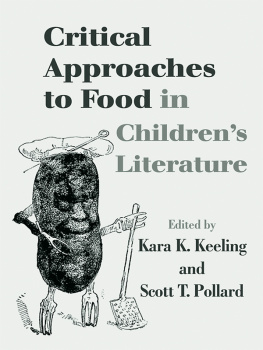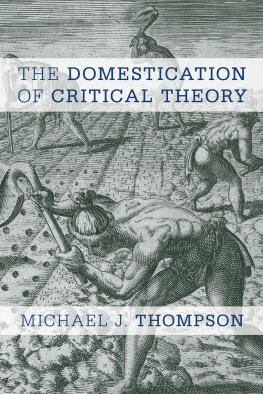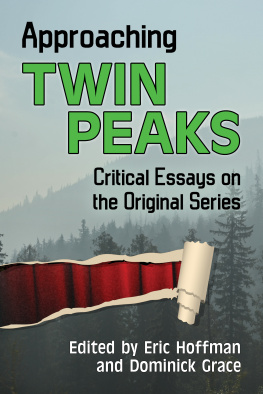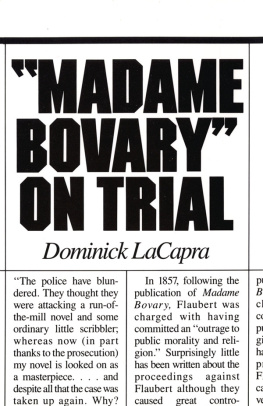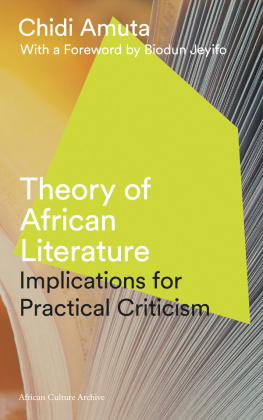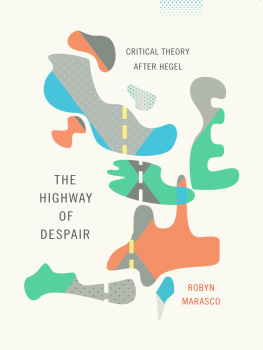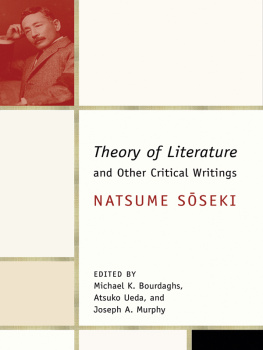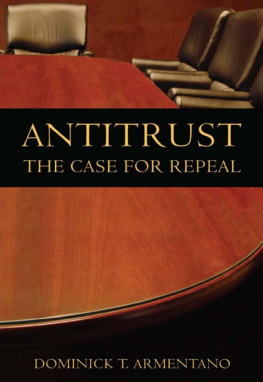LaCapra Dominick - History, Literature, Critical Theory
Here you can read online LaCapra Dominick - History, Literature, Critical Theory full text of the book (entire story) in english for free. Download pdf and epub, get meaning, cover and reviews about this ebook. year: 2012, publisher: Lightning Source Inc. (Tier 3), genre: Art. Description of the work, (preface) as well as reviews are available. Best literature library LitArk.com created for fans of good reading and offers a wide selection of genres:
Romance novel
Science fiction
Adventure
Detective
Science
History
Home and family
Prose
Art
Politics
Computer
Non-fiction
Religion
Business
Children
Humor
Choose a favorite category and find really read worthwhile books. Enjoy immersion in the world of imagination, feel the emotions of the characters or learn something new for yourself, make an fascinating discovery.
- Book:History, Literature, Critical Theory
- Author:
- Publisher:Lightning Source Inc. (Tier 3)
- Genre:
- Year:2012
- Rating:4 / 5
- Favourites:Add to favourites
- Your mark:
- 80
- 1
- 2
- 3
- 4
- 5
History, Literature, Critical Theory: summary, description and annotation
We offer to read an annotation, description, summary or preface (depends on what the author of the book "History, Literature, Critical Theory" wrote himself). If you haven't found the necessary information about the book — write in the comments, we will try to find it.
History, Literature, Critical Theory — read online for free the complete book (whole text) full work
Below is the text of the book, divided by pages. System saving the place of the last page read, allows you to conveniently read the book "History, Literature, Critical Theory" online for free, without having to search again every time where you left off. Put a bookmark, and you can go to the page where you finished reading at any time.
Font size:
Interval:
Bookmark:
There has been a recent tendency in the historical profession that calls for a turn, perhaps a turn back, to a close relation with the social sciences and social history. This tendency is in evidence in William H. Sewells widely acclaimed Logics of History: Social Theory and Social Transformation , Also evident in these books, notably in Spiegels introduction to the volume she edits, is a certain resistance to the so-called linguistic and cultural turns that stressed historys relation to the humanities, including literature and critical theory. In my judgment, it would be self-defeating to decide between the social sciences and the humanities in the definition of historiography. The historians own version of a double consciousness is both valuable and in need of continual rethinking.
I would like to focus on one dimension of that process of rethinking with respect to the relation between history and literature. I think the most cogent and thought-provoking way to envision that relation, including what might be called the pressure exerted by the historical on the literary, is in terms of intricate and variable forms of interaction, especially modes of mutual interrogation. In other words, history and literature may be seen as posing questions to one another, the answers to which are not foregone conclusions. One crucial question is precisely how literary texts inscribe or process historical contexts, both in symptomatic, perhaps unconscious ways and through formal procedures that may be quite explicit and well crafted. A related question concerns the relation between historical and transhistorical forces that are intertwined and impinge on texts in different ways, with the epitome of the transhistorical perhaps exemplified at present by the Lacanian realthe traumatic void or break that resists or even annihilates symbolization yet may provoke it as well. Another issue, which at least warrants mention, is the way texts are read differently over time in relation to changes both in the literary field and in the larger sociocultural and political context. (I note at the outset that, for the most part, I shall refer to literature, but the question I would leave open is the extent to which points I touch on might apply to other forms of art as well.)
The two polar, more or less extreme and rather confining responses to the problem of relating history and literature may well disavow or diminish mutual interrogation, but each has had noteworthy proponents. One might be seen as an immanent quest for thoroughly grounded knowledge in relation to which literature or the literary may be an object to be assimilated, perhaps even taken to be an irritant. The other is at times a variant of the quest for transcendence, with the literary given a transcendental or quasi-transcendental status that may be construed in postsecular or displaced religious terms.
Perhaps the primary modality of the immanent quest is contextual reductionism in which a literary text is a mirror image or at least a symptom of some sociohistorical or perhaps transhistorical process or structure such as capitalism, colonialism, the rise of the individual, the emergence of a distinctive if not unique form of experience or subjectivity, even castration anxiety or the real. The text thus becomes a document of the times or perhaps of transhistorical forces. A distinctive variant of this approach, more sensitive to literary developments themselves, at least on a societal or general cultural level, traces the development of the so-called institution of literature, especially as a differentiated system or field of modern culture. The literary in this sense comes to form its own context, which is more or less open to other contextual pressures and similar in its dynamic to other differentiated systems or fields in modern society and culture (for example, science, business, or the professions).
The other response is a vision of the literary text as detached or disimplicated from, or in some basic sense transcending, historical contexts. The text may, however, be situated within the differentiated field or institution of literature in a more or less unself-questioning way or, on the contrary, in a radically contestatory, even self-deconstructing manner. Literature may be On this reading, Flaubert marks the linguistic turn inward of literary language. And language itself is to be construed as a formal system similar to the manner in which music, mathematics, or abstract art is often seen.
By contrast, in contextual reductionism, literature becomes a document with referential functions, perhaps a symptom of historys hidden or secret dimensions. Historians, sociologists, Marxists, and, in a somewhat different sense, Freudians and Lacanians have often taken this approach to literature and art in general. For example, from a sociohistorical point of view, one reads Stendhals The Red and the Black for what it discloses about the play of factions in early nineteenth-century France or perhaps about the suicidal fate of the alienated individual whose subjective values can find no home in existing society. Or one reads Balzac for his insight into the development of capitalistic forces, themselves the deregulated but systemic generators of excess and madness. And one reads Flaubert for his enactment of the autonomization of art as a differentiated sphere of activity that parallels the development of other autonomy-seeking professions. Two especially important theorists, separated by a generation, who propose variants of this approach are Georg Lukcs and Pierre Bourdieu.
In his influential Theory of the Novel of 1920, the young Lukcs elaborated a contrast between the epic, as a form in which there were answers without questions, and the novel, as a form in which there were questions without answers. Typical of the novel was the role of abstract idealism and romantic disillusionment in which the alienated hero could not realize values in the existing world and so generally had a tragic fate. In his own preface of
The later Lukcs stresses the way critical realists provide perspective on social and historical developmentsperspective that may even contradict their explicit ideology, for example, royalism in the case of Balzac. For Lukcs, Balzac was more insightful about the forces of modern history than was the affirmed leftist Zola, who produced what Lukcs presents as a merely photographic, uncritical realism close to positivism in the sciences. Hence, whatever their explicit ideologies, figures such as Balzac and Mann may be recuperated and used by Marxists in sociopolitically progressive, even revolutionary ways. One might say that the impossible quest of the early Lukcs to find in art the presumably lost, integrated world of totality in which one could be at home was itself displaced onto social and political action, and Marxism became the way to realize in historical reality the values that art could enact only in the mode of the impossible dream, the unattainable utopia, or the tragic quest. Still, even in the later Lukcs, the critical dimension of artoften in ways unbeknownst to the writer or artistwas itself reflective of social forces, specifically the rise of the proletariat as the revolutionary subject of history.
In his 2005 impressive yet controversial analysis and critique of colonial violence, which he sees as the origin of later genocides including the Holocaust, Olivier Le Cour Grandmaison is on one level close to Lukcs when he reads Conrads Heart of Darkness as an instance of critical realism in its analysis and indictment of colonial practices. even used for domestic service, although they too might go bad and become unmanageable like Arabs, as was the case with the Herero in 1904 (82). For Grandmaison, Conrads novel is a more reliable history of these empirical processes than were actual histories of the time and even subsequently, histories that were misleading vehicles of ideologies of progress, imperial glory, and the civilizing mission. He concludes that the literature of Conrad, at least that which has held our attention, is a literature of radical and brutal disenchantment. Thats why it was rebellious at its time; it remains so today, for it allows one to take the just measure of what was the conquest and colonization of Africa for the populations that were subjected to it (167; my translation). Despite his trenchant formulations and incisive analyses, Grandmaison, while not reducing texts to symptoms of contexts and instead recognizing, perhaps even exaggerating, their critical power of provocation, does not inquire into their internal tensions or self-contestations, for example, that between Tocquevilles violent, at times exterminatory response to North African peoples (or to the working class in France after 1848) and his democratic liberalism, reserved for civilized peoples. He also does not look into the different if not divergent movements in Heart of Darkness itself. In Conrads text (discussed in the following chapter) there is both a radical condemnation of, and a fascination with, the violent excesses personified in Kurtz, a fascination that affects Marlow, the unnamed narrator, and arguably even the implied author and perhaps the reader as well, who is drawn in by the way a quest narrative almost inevitably endows its object (be it the heart of darkness) with an ambivalent allure.
Font size:
Interval:
Bookmark:
Similar books «History, Literature, Critical Theory»
Look at similar books to History, Literature, Critical Theory. We have selected literature similar in name and meaning in the hope of providing readers with more options to find new, interesting, not yet read works.
Discussion, reviews of the book History, Literature, Critical Theory and just readers' own opinions. Leave your comments, write what you think about the work, its meaning or the main characters. Specify what exactly you liked and what you didn't like, and why you think so.

